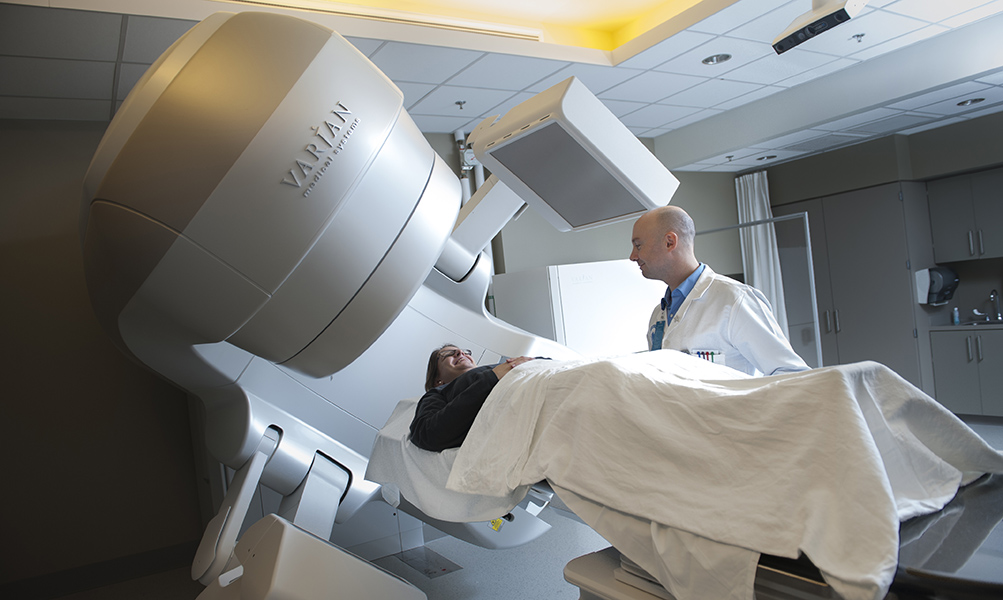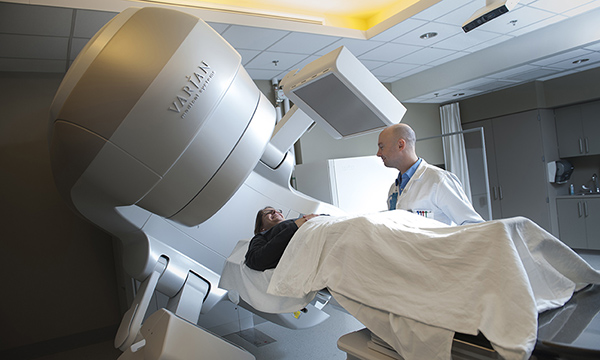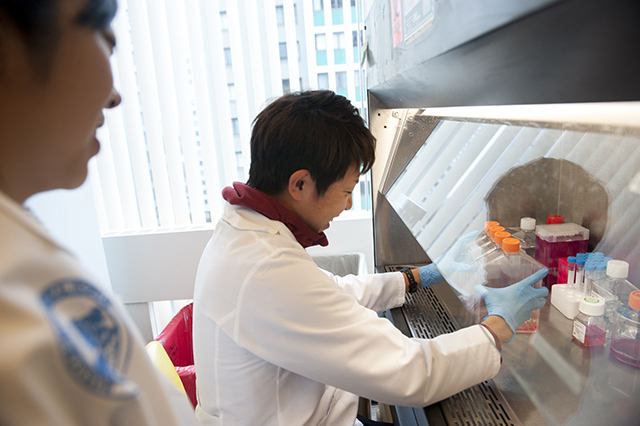About the Department of Radiation Oncology


Mission Statement
The mission of Harvard Medical School’s Department of Radiation Oncology at Massachusetts General Hospital is to provide excellence in patient care by administering the highest level of quality in a safe and compassionate environment. We strive to excite, educate, encourage, train and mentor a comprehensive team of physicians, physicists, radiation therapists, and dosimetrists to become excellent caregivers, to develop methods to improve outcomes for their community, and to become future leaders in academic medicine and/or healthcare delivery. We are active participants, not bystanders, in the revolution of life science discoveries that will distinguish the first part of this century as reducing human suffering.
Pioneering Radiation Oncologists
Our staff physicians are some of the world's most knowledgeable and skilled radiation oncologists and are all faculty members at Harvard Medical School. Being at a large academic medical center allows our physicians to specialize in specific types of cancer. As part of the multidisciplinary Mass General Brigham Cancer Institute, radiation oncologists work closely with medical oncology and surgical oncology colleagues that specialize in the same disease, and together, they develop the optimal treatment plan for each patient. The ability to have a thoughtful and well-coordinated treatment plan developed jointly by radiation oncologists, medical oncologists and surgical oncologists sets MGH apart from most other cancer centers and has positive impacts on the quality of care provided.
Advanced Radiation Technologies
Our state-of-the-art radiation technologies, found in few other U.S. hospitals, provide precise targeting of tumors while minimizing the potential for injury to surrounding tissue. Each year, we successfully treat thousands of patients with noninvasive and minimally invasive internal and external radiation therapies, including proton beam therapy, stereotactic radiosurgery, stereotactic body radiation therapy (SBRT), brachytherapy, intensity-modulated radiation therapy (IMRT), volumetric arc therapy (VMAT) and image-guided radiation therapy (IGRT).
Cutting Edge Research

In addition to our patient care mission, our physicians, physician-scientists and physicists are among the most active, visionary investigators in developing next-generation radiation therapies. Clinical, translational, and laboratory-based biology research are critical components of Mass General’s Department of Radiation Oncology. We lead many of the country’s radiation oncology clinical trials and have special protocol staff that help patients learn about, and enroll in, clinical trials if they are eligible. Presently, there are four main pillars of research within the Department of Radiation Oncology including the Cellular and Molecular Radiation Oncology Laboratory, the Edwin Steele Laboratory, the Medical Physics Research Group, and the Proton Research Group. The research conducted in these areas will lead to improved approaches to radiation therapy in cancer treatment and further understanding of mechanisms of radiation-induced cancer, leading to development of novel targets for cancer therapy and new preventative approaches.
Commitment to Education
The Department of Radiation Oncology has a strong commitment to sharing our specialized knowledge with future generations through supporting education efforts. In addition to our affiliation with formal training programs such as the Harvard Radiation Oncology and Medical Physics Residency Programs, we routinely host visitors from across the world, who observe and learn from our radiation oncology experts through our Radiation Oncology Observership Program.
Supporting the Community

The Department of Radiation Oncology department is dedicated to supporting our community, both locally and abroad. We are proud to partner with the MGH Center for Community Health Improvement to expose local high school students to careers in Science, Technology, Engineering and Math (STEM).
We also have a unique collaboration with radiation oncology colleagues in Botswana, the BOTSwana Oncology Global Outreach program (BOTSOGO). MGH Radiation Oncology works to improve access to quality cancer care in Botswana through a growing collaboration between physicians and other healthcare professionals in Boston and in Botswana. The group’s ultimate goal is to improve access to quality cancer care in Botswana by educating the Botswana population, training future generations of cancer caregivers and conducting vital clinical research.
Department of Radiation Oncology
The Massachusetts General Hospital Department of Radiation Oncology is a leader in developing and implementing some of the most innovative and effective radiation therapies in the world.
